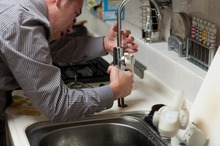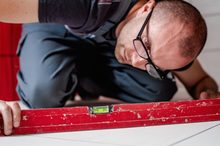The Benefits of a CMMS in Servicing Major Equipment
Factories, mines, water treatment plants, generating stations, and other such installations must maintain essential equipment. This leads to the following maintenance needs:
- The equipment has to keep running. If it goes down, production suffers and business can be lost (not to mention the wasted expense of personnel sitting around unable to do their jobs).
- Controlling your spare parts inventory is a major concern. You need to have the right spare parts on hand so that you can make repairs quickly. (You don't want to shut down for days while you wait for a part to be delivered.) At the same time, spare parts can be very expensive; you don't want too much money tied up in spare parts that you don't actually need.
- Equipment is often complex and highly specialized. Workers may need access to reference materials (manuals, diagrams, videos, etc.) in order to do many jobs.
- Owners, managers, and workers must protect themselves against liability claims from anyone injured on the premises.
How can a CMMS address these needs?
- A CMMS makes it easy to schedule preventive maintenance and inspections, reducing unplanned downtime and failures (and also extending equipment life).
- Computerized inventory control lets you manage your spare parts more effectively. Once you have hard facts about what you do and don't need in inventory, you can optimize what you keep on hand, usually saving money.
- When you do need a spare part, the CMMS quickly tells you where the part is stored in inventory. You don't waste time searching through your storerooms.
- If worse comes to worst and you don't have a spare part in inventory, the CMMS can tell you what other pieces of equipment use the same part. This gives you the option of taking a part from one piece of equipment to repair more important equipment.
- A CMMS can help you project future costs by tracking the typical lifespans of equipment and determining when replacements will be needed.




